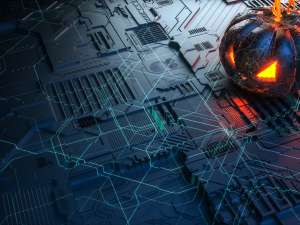
Tips to avoid being scared to death by cyber criminals this spooky season
The spooky season is in full swing – the summer is over, and the temperatures have dropped. As the day gets shorter, the leafy streets and the smell of pumpkin spice latte are slowly telling everyone that the fall has arrived. However, the spooky season is not all about pumpkin patches and Halloween decorations.
We may not be sure how helpful are the scary costumes when it comes to warding off evil spirits, but we may know a thing or two when it comes to spooking cyber criminals. Evil spirits don’t aim to drain your bank account, steal your identity, ruin your business, and destroy your life.
Still, most online bad actors’ primary goal is to exploit cyber loopholes and swindle anyone who is unprotected or unwise enough to fall for their scams. Here are our five tips on spooking criminals away from you and your loved ones.
Freeze your credit
There have been so many data leaks over the years that your SSN and other sensitive information are very likely dangling around on the dark web.
When hackers steal credit card numbers, banks issue new ones with different numbers – but the government makes it extremely hard for people should they want to change SSNs.
You likely don’t get to buy a new car or a house or do transactions that require SSN often, so freezing your credit is arguably one of the best ways to spook the crooks. Keep it frozen and unfreeze it only when necessary.
Don’t click on links in emails and text messages
There are a variety of scams that could reach you. All of them have one thing in common – they exploit a weakness.
Users would accidentally (or on purpose) click on a suspicious link in a phishing email. Others might feel lonely enough to reply to a random person starting an online conversation and lose their lifetime savings in a pig butchering scam.
Whatever the weakness, try to hide it and show strength instead – that certainly is a way to shoo off the fraudsters.
Antivirus software
Indeed, one of the best ways to scare off crooks is by having a proper defense system. Some antivirus software solutions are so good that they destroy any hacking attempts.
They hide your information when necessary; they help you stay untraced while browsing online; they prevent phishing emails from reaching you and block you from being able to visit suspicious websites.
The systems also run scans on your connected device and quarantine suspicious files.
Change your passwords frequently
Cybercriminals love to take advantage of old stolen password databases. You will be safe if you maintain good password hygiene and change passcodes every three months. Passwords that are twelve characters or more and contain numbers, letters, and special symbols are preferable.
Fraudsters get less motivated if they deal with a long and strong password. Activating two-factor authentication also helps as it stops hackers from forcing their way into a bank account or a profile.
Shop wisely
The spooky season also marks the beginning of the shopping season.
Apart from shopping only at recognizable online stores, an excellent way to spook bad actors is using credit cards instead of debit cards. Credit cards often have insurance, so you will likely get refunded even if you fall for a scam.
However, if you’ve purchased stuff with your debit card and hackers somehow have managed to steal your card info, they could potentially drain your bank account, and the bank won’t be able to do much to restore the stolen funds.
Make the spooky season even spookier for fraudsters by following the above tips. Keeping the bad actors away would give you more time to enjoy the fall festivities and prepare for the holidays.
The post How do you spook cyber criminals? appeared first on Panda Security Mediacenter.
Article Link: https://www.pandasecurity.com/en/mediacenter/security/spook-cyber-criminals/
1 post - 1 participant
Malware Analysis, News and Indicators - Latest topics


Post a Comment
Post a Comment